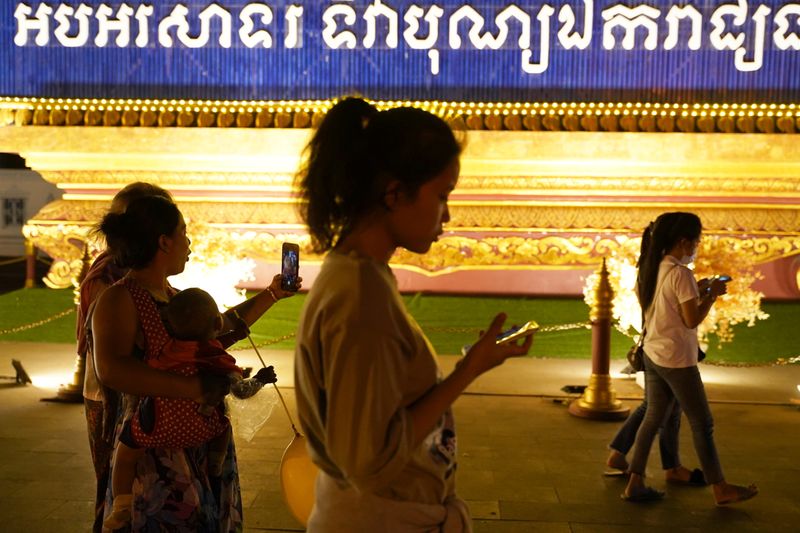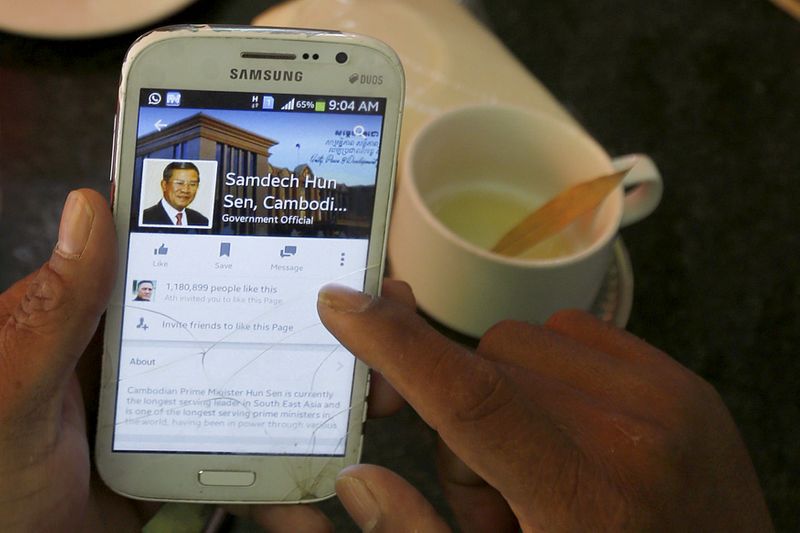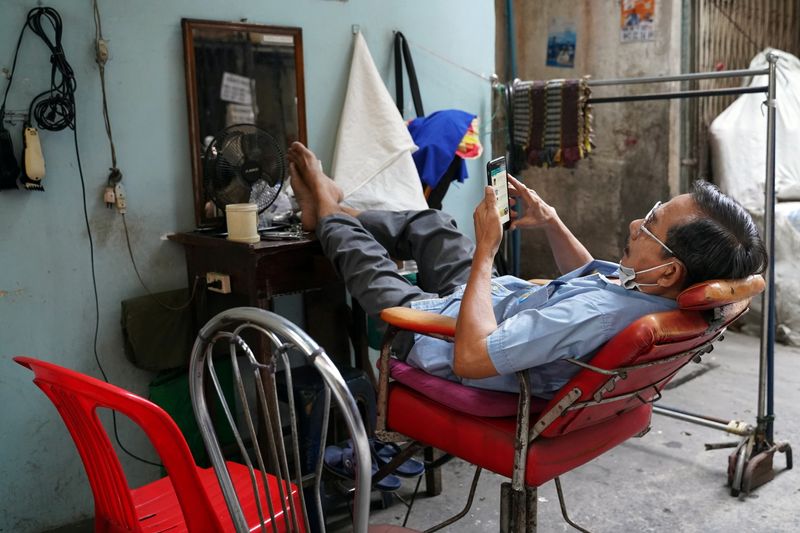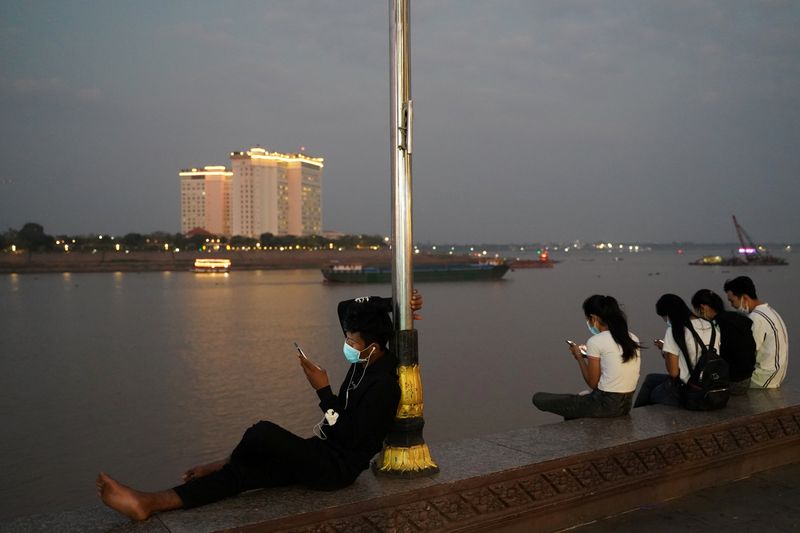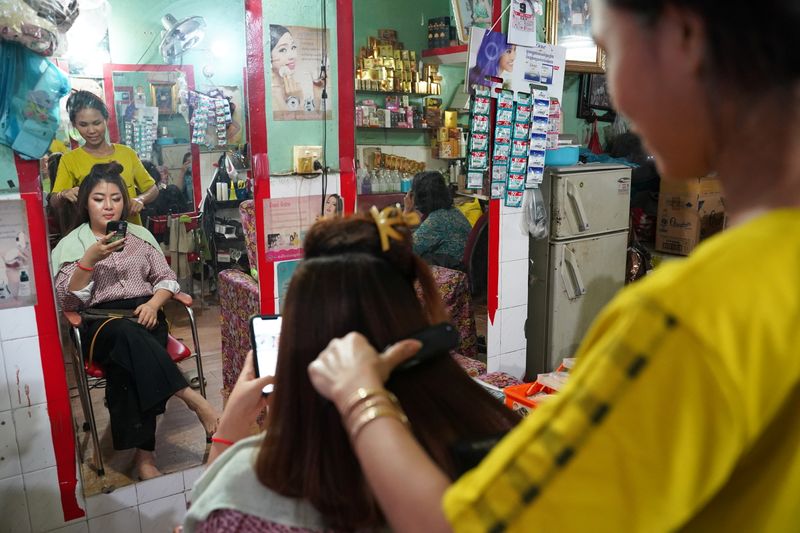PHNOM PENH (Reuters) – Human rights groups decried Cambodia’s establishment this week of a China-style internet gateway that would allow all online traffic to be controlled and monitored, saying it would be a new tool for longtime leader Hun Sen to repress any opposition
“Prime Minister Hun Sen struck a dangerous blow against internet freedom and e-commerce in Cambodia by expanding the government’s control over the country’s internet,” Phil Robertson, deputy Asia director at Human Rights Watch, said on Thursday.
“Cambodia’s National Internet Gateway is the missing tool in the government’s toolbox for online repression,” he said in a statement.
An 11-page decree announced on Wednesday requires internet service providers to reroute their services through a National Internet Gateway within the next 12 months, before February 2022.
The gateway is similar to that of China, an important economic ally for Cambodia, which has seen its ties with the United States and European Union deteriorate recently.
It requires service providers to make users complete online forms with their correct identities and says failure to connect networks to the gateway would result in operating licenses being suspended and bank accounts frozen.
Government spokesman Phay Siphan on Wednesday said the decree was necessary because there was no order to the internet in Cambodia, adding it was less intrusive than regulations in the United States and Britain. The new gateway comes as Hun Sen’s government faces international criticism over a crackdown that has decimated civil society and the political opposition, resulting in a power monopoly for his party, and criminal charges and jail terms for many of its rivals.
Emerlynne Gil, Amnesty International’s deputy regional director for research, called the new gateway “a disaster for human rights”.
“In the context of an escalating crackdown on human rights defenders, mass trials of opposition supporters, and rising numbers of prisons of conscience – this development is especially alarming,” Gil added
(Reporting by Prak Chan Thul. Writing by Kay Johnson)

